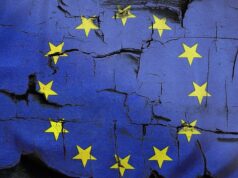Fear has been circulating through Brussels‘ European quarter for months, and the European elections of May 2019 will bring an avalanche of fake news and propaganda across the continent. On Wednesday, the EU Commission presented an action plan to intensify the fight against disinformation and to be presented to EU leaders next week for approval.
EU Internal Market Commission Vice-President Andrus Ansip admitted to the media that lies, deception and propaganda in politics are not new phenomena. But disinformation in the digital world is much easier, faster, cheaper and more successful to bring to people than before – which makes new counterstrategies necessary.
Early warning system against fake news
The focus is on Russia’s efforts to meddle in Western votes and elections through Kremlin-related foreign media, trolls and false social media accounts. In its package of measures, the Commission proposes an increase in the East Stratcom task force of the EU’s External Action Service, which has already disclosed around 4500 manipulative Russian reports since 2015. Now the budget of the task force is to be increased from 1.9 to 5 million euro per year. By March, the EU intends to set up an early warning system against fake news with units from all member states that are to exchange information in real time so that manipulation attempts can be quickly identified and uncovered.
Now European countries can not stand by their foreign interference in their democratic processes, but with regard to freedom of expression, the authorities are also raising questions about lying. In its Action Plan, the EU defines disinformation as having been proven to contain false or misleading information that, while not illegal, intentionally deceives the public and causes public harm. Satire or partisan coverage are expressly excluded.
But in individual cases, the border is not easy to pull, as an EU expert admits. Therefore, the task force focuses on verifiable verifiable facts, putting behind-the-scenes images or videos into their original context. There are few good indications of Brussels‘ intention to considerably intensify its efforts to communicate the values and strategies of the EU, especially as the EU is already aggressively promoting itself in its own right.
Transparency in the digital election campaign
The European ambitions of Steve Bannon, the former chief strategist of US President Donald Trump, caused a stir in the media. It is doubtful whether Bannon succeeds in bringing together the right-wing populist parties in Europe for the European elections under one roof. However, Cambridge Analytica’s former vice president’s plan to provide EU skeptics with a „war room“ for the digital campaign has compounded the fear of intransparent micro-targeting and data manipulation in the European election campaign.
In any case, the EU Commission wants to make the Internet platforms more compulsory. Recently, companies such as Facebook, Twitter, Youtube, Mozilla or Google have signed a voluntary code of conduct in which they commit to closing false accounts and labeling social robot posts as such. In the area of political advertising, too, the Internet platforms should create transparency, so that it becomes clear to the users who, for what reason, they are happy with target-group-specific or individual election advertising.



